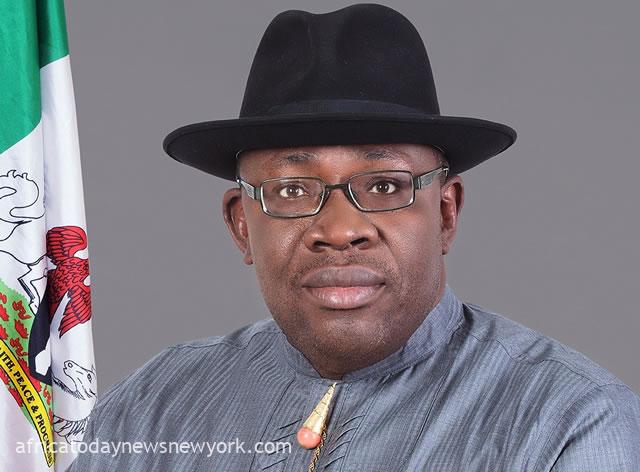The Senator representing Bayelsa West in the National Assembly, Seriake Dickson has asserted that insufficient mechanism for accountability by leaders in the country was a problem created by the 1999 Constitution.
The lawmaker made this assertion on Inside Sources with Laolu Akande, a socio-political programme which monitored by Africa Today News, New York.
Dickson who has been in the red chamber since 2020 pointed out that the 1999 Constitution created emperors as President and governors because the drafters of the document omitted accountability in terms of the use of power by public office holders.
Asked why some governors have been obstructing financial autonomy for local governments, the ex-Bayelsa governor said, “If you look at the framework of our constitution, the biggest emperor that the Nigerian Constitution has created is the President, that’s the biggest emperor but there are also 36 and now 37 (a Minister of the FCT).
“There are 37 emperors because of the insufficient mechanism for accountability built into the constitution which is what we must address. Accountability in terms of the use of power.”
Read Also: Discard 1999 Constitution, Tinubu’s Ally, Akande Tells NASS
There have been calls for Nigeria to birth a new constitution with many elder statesmen and socio-political groups like the Afenifere, Ohanaeze Ndigbo, Pan Niger Delta Forum, the Middle Belt Form, amongst others demanding a sovereign national conference for the various ethnic nationalities in the country to discuss and agree on the terms of peace co-existence and governance including the subjects of state police, fiscal federalism, restructuring, amongst others.
In February, the House of Representatives formed a constitution review committee to address contentious issues and revamp the document handed over to the civilian government by the military in 1999.
Dickson, who is a member of a similar committee in the Senate, expressed his desire for the country to have “a comprehensive review of the constitution”.
“The underbelly of the constitutional inadequacies has come to the fore that those who are even opposing state police for example are now some of those who are now on their own advocating for it, which is very good,” he stated.
“The National Assembly (I am also a member of the Constitutional Review Committee), we have not been far-reaching enough; it’s always been piecemeal because of the difficulty of building consensus over the years about building consensus. But in the last Assembly, the 9th Assembly, I think we achieved some of it – railways, airports, electricity, prisons, they can now go to the concurrent list because what we are calling restructuring which people claim they don’t understand. They know what we mean; what we are saying is: address the constitutional foundation of the country. Let’s go back to the earliest constitutions.”
The lawmaker opined that President Bola Tinubu should convoke a national dialogue to address major existential issues in the country.
“I think we should have a robust national dialogue. It would be nice if the President convokes it but it is more than mounting a convocation of another jamboree, it’s about selecting a team and consulting on areas of broad national consensus like state police or even the judiciary,” Dickson stated.
The ex-governor also threw his weight behind the growing call for Nigeria to return from the presidential system to parliamentary government.
The lawmaker said the current Nigeria does not measure to the goals and aspirations of the founding fathers of the country at independence over six decades ago hence the need to return to the original ideals of the past heroes.
He lamented that the Nigerian elite, unknown to themselves, are collectively committing mass political suicide as their service to the country has not been based on shared values and ideals for Nigeria’s development but selfish interests.

